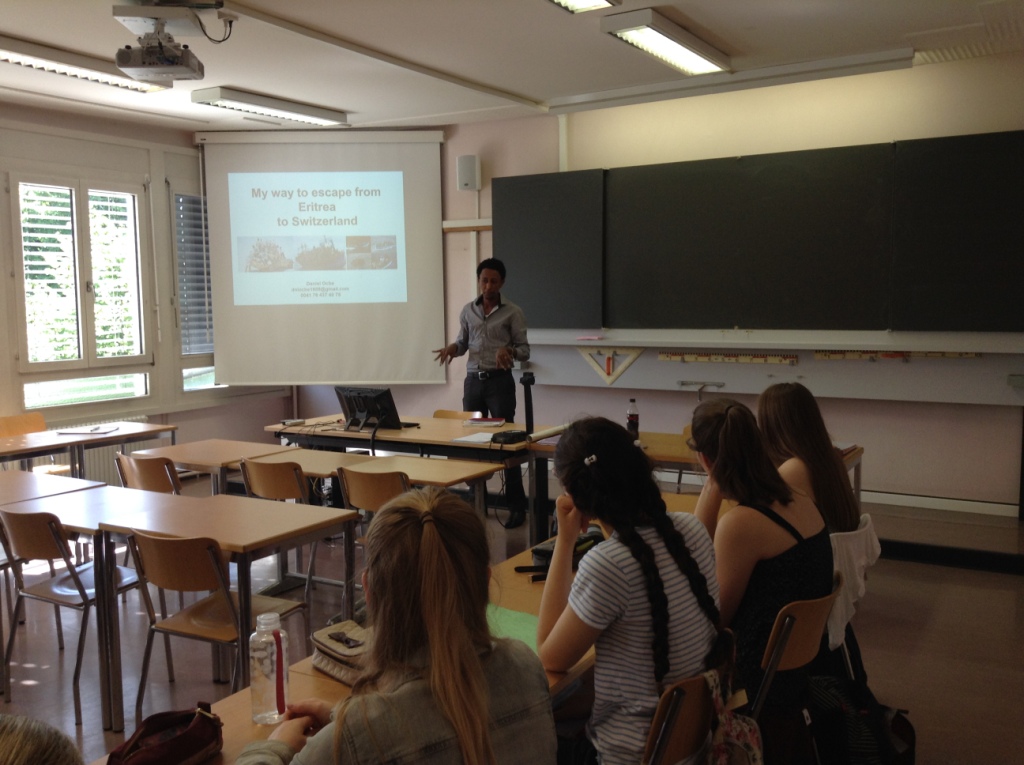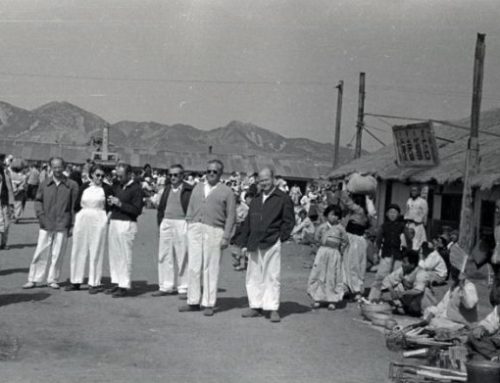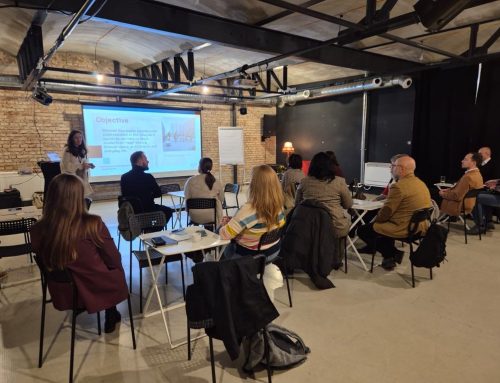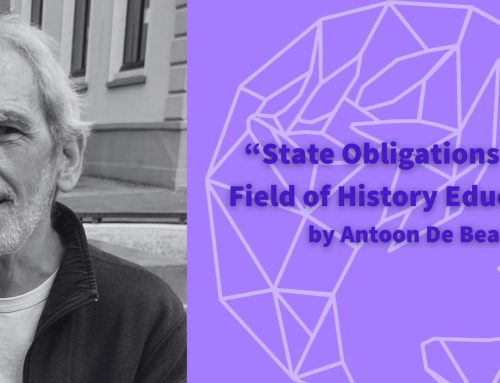“Don’t say globally something is good or bad, simply have an open mind.”
The sentence above is from Daniel Ocbe, a refugee from Eritrea, who spent a day at our school in June 2016. Daniel’s talks confirmed to me the immense value of face to face encounters for citizenship education.
It was in May that Daniel Ocbe contacted me via EuroClio Director Jonathan Even-Zohar, who had met him at a United against Racism conference in Torino, Italy. At our following meeting in Zurich Daniel impressed me from the first moment with his extraordinary strong will and his determination on one side and being such a kind and friendly and open minded person on the other side. Living in Switzerland now for a bit less than three years, he achieved a lot in this time (he speaks German really well!), but also has challenges ahead (the next big one is to find a place for an apprenticeship).
He accepted the invitation to come to our school, where he gave a presentation to two 10th grade classes. He talked about the current political situation in Eritrea, a country not very much is known about here, although there is a large group of Eritrean refugees in Switzerland. Then he talked about his escape from Eritrea via Sudan, Libya, the Mediterranean to Italy and finally to Switzerland. The students asked a lot of questions about his perception of Switzerland, about experiences of racism in Switzerland and a lot of other topics. They reacted very open and positive from the first moment on, so the planned time was over almost too fast.
Where do I see the value of those encounters?
For me it is crucial that we either go out of school a lot more, travel with youngsters AND meet people (travelling alone is not the point), travel to places they would not go on their own, expand their horizons, challenge their mindset by confronting them with different positions, make them familiar with experiences that are not part of their everyday life.
If travelling is difficult, then bringing people to school is also a big step of bringing “real life” to school and getting out of this very small school world.
Living in a time with ever more virtual communication, it is crucial for those youngsters to actually meet people – face to face. “You need to feel it, to see it, to touch it” – that is still an important point for me.
It is something completely different if we are talking about things or persons (like for example Eritrean refugees), or if we have direct encounters and talk with those persons. The longer I teach the more I think that face to face contacts are not replacable by anything – also not by virtual communication.
Meeting people that can be positive role models by living positive values and attitudes can be so important for youngsters.
Of course the personality of the person invited is also an important part. Students need to be able to really get in touch with that person. Talking about values like openmindedness or reconciliation for example, is only credible to the students, if the person lives those values. Therefore he or she needs to be an authentic person and whenever this is given, there is never a real problem with students, who are very sensitive to being authentic and credible.
The not always easy task is to find these persons, but having found them, it is no big job at all, bringing them to school. In case you might never have tried it, I would just like to encourage you to do it.
About the Author
Daniela Zunzer was born in Germany and grew up in Germany and Switzerland. She studied history, geography and social anthropology in Zurich and Berlin. She has a master’s degree from Humboldt-University in Berlin in history (1996). After some years as a researcher at the Humboldt-University, she is teaching history in a high school in Fribourg / Switzerland since 2001 (grades 10-13).













